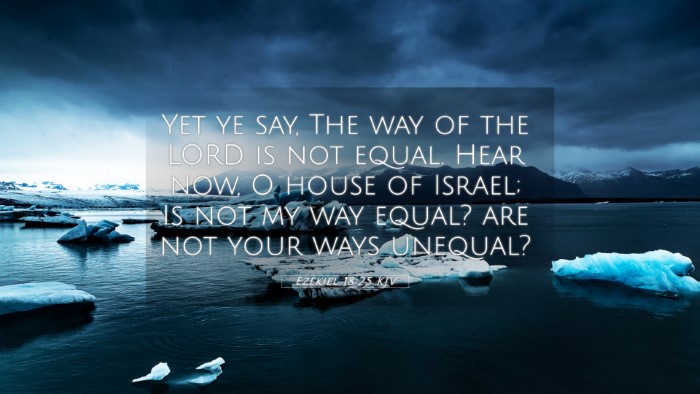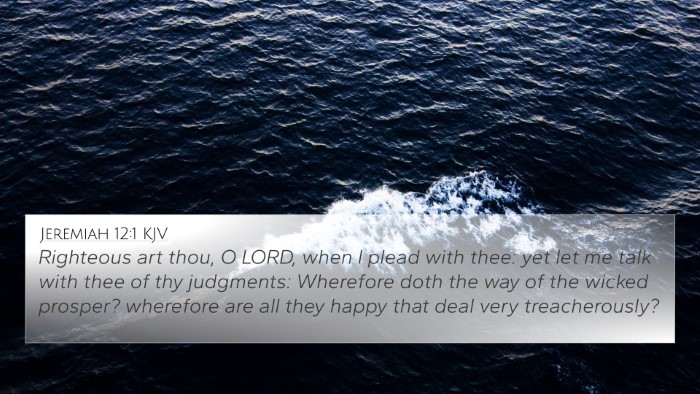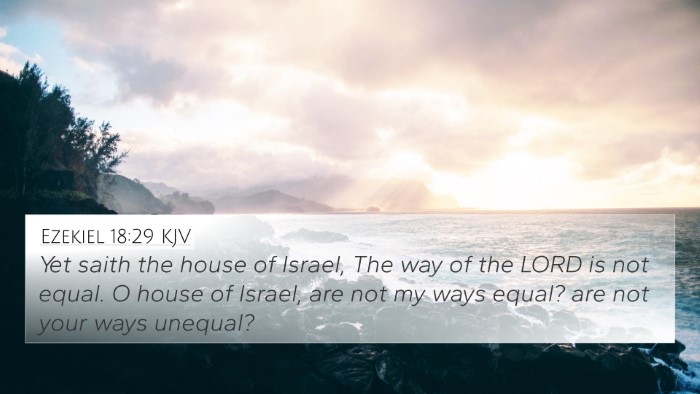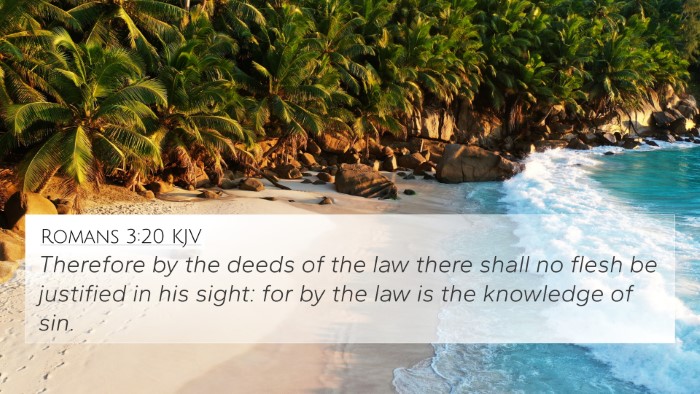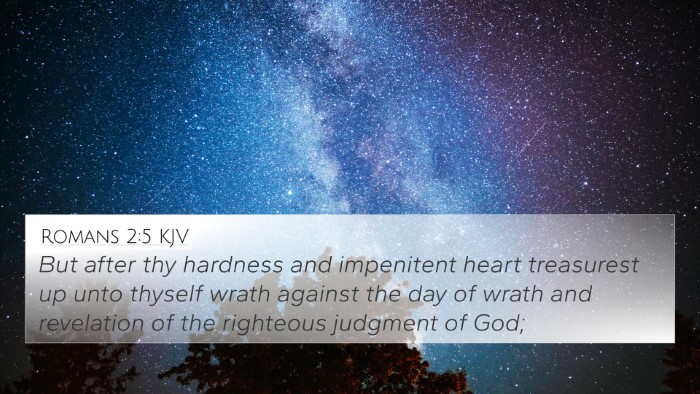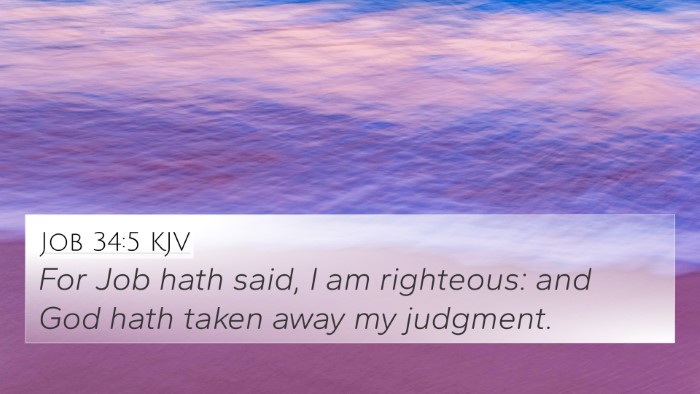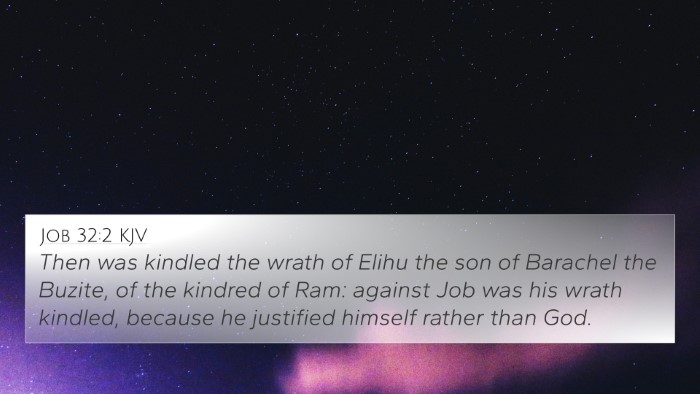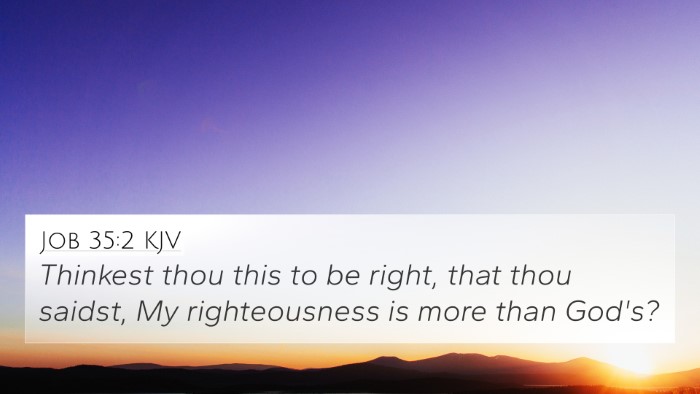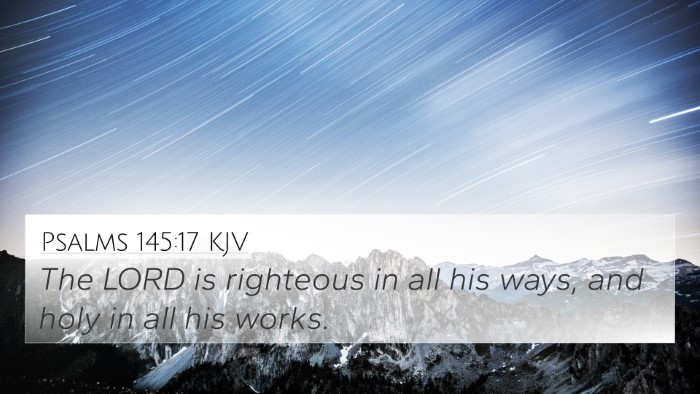Ezekiel 18:25 - Summary and Interpretation
Ezekiel 18:25 states: "Yet you say, 'The way of the Lord is not just.' Hear now, O house of Israel: Is it not My way which is just, and your ways which are not just?" This verse conveys a profound message about the nature of justice, accountability, and the character of God's ways compared to human perceptions.
Interpretation Summary
This verse addresses a common complaint among the people of Israel regarding the fairness of God's judgments and their belief that God’s ways are not just. The verse serves as a divine response highlighting that it is not God’s ways that are unjust, but rather the assumptions and actions of the people themselves. The focus is on individual responsibility, where the consequences of one's actions are a matter of personal accountability before God.
Commentary Insights
Matthew Henry's Commentary
Matthew Henry posits that this verse displays God's clarity and patience in addressing the unfair criticisms of His judgments by His people. He emphasizes that God, being just, requires the Israelites to take personal responsibility for their actions, reinforcing the idea that God's justice is not arbitrary but rooted in divine righteousness.
Albert Barnes' Commentary
Albert Barnes explains that the charge against God’s justice is a manifestation of human shortsightedness. He discusses how God, in His supreme authority, corrects the misinterpretations of justice voiced by Israel. Barnes elaborates that God’s judgments are always fair and deserved, pointing to the importance of moral integrity and personal accountability in the morals that govern His people.
Adam Clarke's Commentary
Adam Clarke highlights that this accusation about God's justice reveals a misunderstanding of divine order and the consequences of sin. Clarke suggests that God's ways are universally just and that Israel's claims originate from their unrepentant hearts that refuse to recognize their own faults and shortcomings. He underlines the necessity of aligning one’s understanding with divine truth as a path to clarity and justice.
Related Bible Cross-References
- Ezekiel 18:30 - Calls for a personal turning from sin, emphasizing repentance.
- Deuteronomy 32:4 - God’s works are perfect; all His ways are just.
- Romans 2:6-8 - God will repay each person according to their deeds.
- Matthew 12:36 - People will give account on the day of judgment for every empty word they have spoken.
- 2 Peter 3:9 - God is not slow in keeping His promise, but patient, not wanting anyone to perish.
- John 5:30 - Jesus emphasizes His dependence on the Father for just judgments.
- Psalm 119:137 - Righteous are You, O Lord, and Your laws are right.
- Galatians 6:7 - A man reaps what he sows; an important principle of divine justice.
- Isaiah 55:8-9 - God's thoughts and ways are higher than ours, illustrating the divine perspective on justice.
- James 1:13 - God cannot be tempted by evil; He does not tempt anyone, reinforcing His unchanging justice.
Thematic Connections
This verse situates itself within a broader theme of divine justice that runs throughout the Scriptures. The connections between Bible verses can shed light on the universal truth that God’s judgments reflect His righteousness.
- By reflecting upon Isaiah 30:18, which speaks to God's longing to be gracious, we can grasp His character as just yet merciful.
- Examining Hebrews 12:6, which indicates that the Lord disciplines those He loves, further illustrates that God's justice is intertwined with His love.
- Micah 6:8 asks what God requires, signifying the active role of human response to divine expectations of justice and mercy.
- In light of Proverbs 21:2, where every way of a man seems right in his own eyes, but the Lord weighs the hearts, we understand the distinction between human and divine perceptions of justice.
- Reflection on Luke 18:7-8 emphasizes God's justice as something He upholds earnestly for those who cry out to Him.
Conclusion
Ezekiel 18:25 encapsulates a vital element of spiritual understanding: the need for individuals to recognize that their complaints about God’s justice often stem from their misunderstanding of divine principles. Through the lenses of Matthew Henry, Albert Barnes, and Adam Clarke, we see a clarion call to personal accountability, an acknowledgment of God’s judgment as inherently just, and an invitation to realign our perspectives with God’s unchanging truth.

